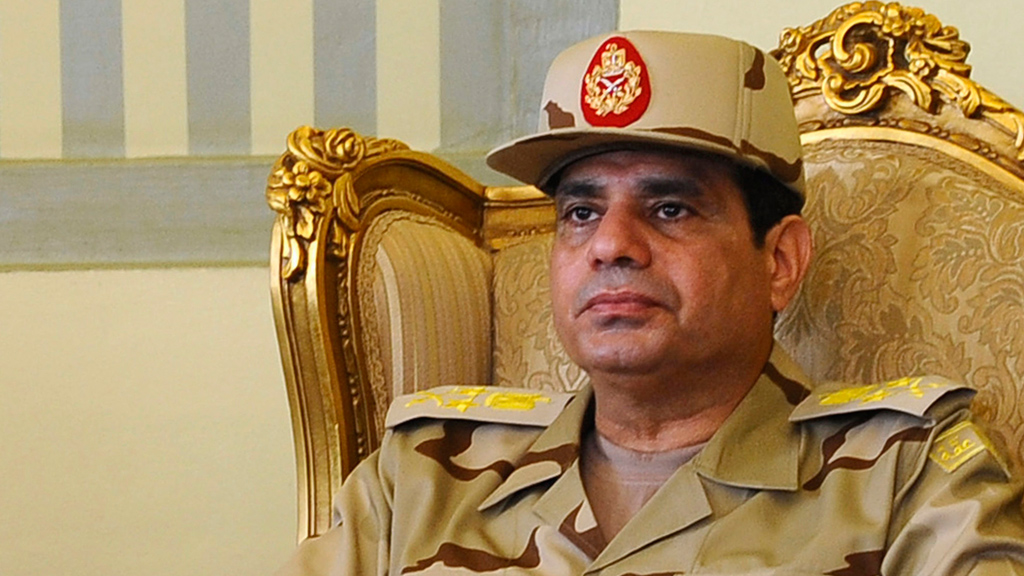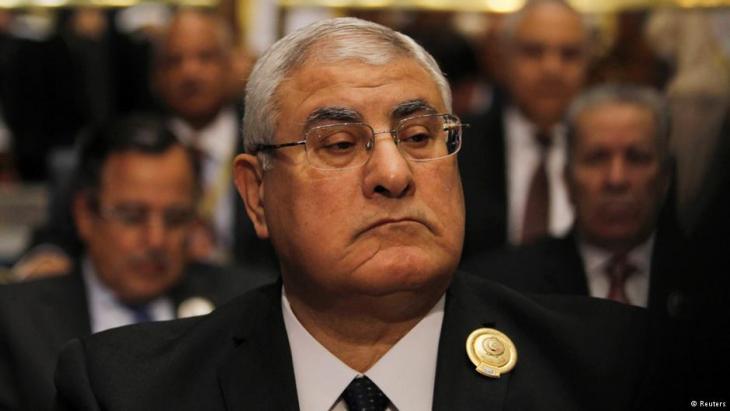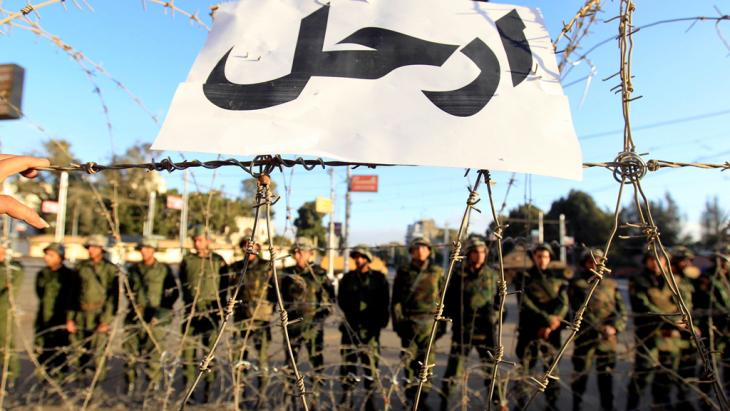Everything under control

With only a few weeks to go until the country's presidential election, Egypt's army is poised to place yet another candidate from its ranks at the helm of the country. Former army chief Field Marshall Abdul Fattah al-Sisi is widely expected to secure a landslide victory on 26 May.
Behind the scenes, Egypt's army – the biggest in the Middle East – has regained its former dominance both at political and economic level. After the toppling of Islamist President Mohamed Morsi of the Muslim Brotherhood last July, Egypt's generals have managed to secure several multi-billion dollar projects.
"Many investors are openly approaching the army," says Sherif Zaazaa, a business expert and journalist who works for the Egyptian news portal Mada Masr. "They know that it's solely the army that's in control at the moment."
Billions from the Gulf
While privately owned companies have been struggling beneath the burden of general chaos and political insecurity since the revolution, the army seems to have been barely affected by it all. According to some observers, it is in fact profiting from the status quo.
In recent months, the government in Cairo has commissioned construction companies run by the military to carry out several large infrastructure projects. In November, Interim President Adly Mansour issued a decree allowing the government to skip the tender process when commissioning projects. Since then, it has been above all companies run by the army that have benefited from this move.

Above all, however, the generals are doing business with foreign investors. In March, the army closed a $40 billion (€29 billion) deal for housing with Arabtec, a construction company from the United Arab Emirates.
Egypt's army is also working closely with Gulf States partners in the energy supply sector and other commercial sectors.
"A lot of these deals are happening because it's the Gulf States leaders' way of supporting the military and helping them maintain influence and power in Egypt," said Shana Marshall, who heads the Institute for Middle East Studies at the George Washington University in Washington, DC.
Benefitting from Morsi's mistakes
By supporting Egypt's army in this way, Saudi Arabia and the United Arab Emirates in particular hope to keep the Muslim Brotherhood in check. Monarchs in both countries were very worried while Morsi, himself a member of the Muslim Brotherhood, was in charge. They regard the Muslim Brotherhood's take on linking Islam with democracy as an attack on their own style of authoritarian rule.
Morsi had used caution when dealing with the army and didn't curtail its economic power. Shana Marshall feels that it was his unpopularity coupled with the unpopularity of the Muslim Brotherhood's Freedom and Justice Party that gave the army an excuse to seize complete control of the country.

Economic powerhouse
Just how much of Egypt's economy is controlled by the army is unclear; estimates range from 5 to 60 per cent. The country's defence budget and other figures that could shed light on the army's true power are kept secret.
What is clear, however, is that the army is active in every single important sector in the economy: from pasta production and the manufacture of furniture and television sets to oil drilling and infrastructure projects. The army also owns hospitals and Red Sea tourist resorts and plays a leading role in agriculture.
These army-owned companies are usually run by retired military personnel, who earn well privately in addition to collecting their public pensions. It also means that they are not tempted to go into politics. It's not clear how many people in the army support al-Sisi as presidential candidate, says Zaazaa. "That's why it's all the more important to keep potential critics occupied."
Lack of expertise
However, army personnel in suits generally lack business expertise, so in order to stay competitive, the army has resorted to other measures: their companies don't usually have to pay taxes, they profit from massive subsidies and can deploy army recruits as cheap labour.
In the aftermath of the revolution on 25 January 2011, many Egyptians called for an end to these practices. However, these calls are hardly heard anymore, among other things because of the state-controlled media which continues to hail the army as Egypt's saviour from the Islamists.
Zaazaa thinks that things could change once again should Egypt's economic situation not pick up pace under al-Sisi. Marshall, on the other hand, warns that the opposite could in fact be the case: "The day-to-day concerns of most Egyptians are light years away from issues such as greater transparency," which is why it is questionable that these earlier demands will be voiced again.
Markus Symank
© Deutsche Welle 2014
Editors: Sonya Diehn/DW.de and Aingeal Flanagan/Qantara.de
